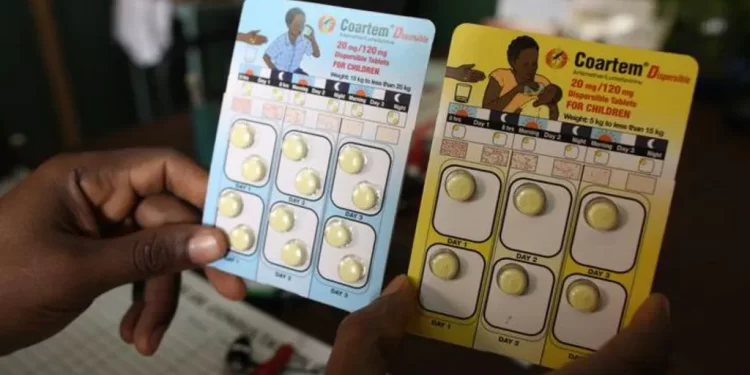Coartem Baby Approved as First Malaria Treatment for Newborns and Small Infants
In a landmark move to close a longstanding treatment gap in malaria care, Swiss regulators have approved Coartem Baby—the first malaria treatment specifically developed for newborns and infants under 4.5kg (approximately 10lbs). The drug is expected to be rolled out across high-burden African nations within weeks.
Until now, no approved malaria medication existed for babies in this weight category, leaving caregivers and health workers to administer adjusted doses of medicines meant for older children—a risky practice given the delicate physiology of infants.
High Mortality Among Children Under Five
Malaria remains one of the world’s most lethal diseases, with 597,000 deaths recorded globally in 2023, according to the latest data. Africa accounted for the vast majority of these deaths, and nearly three-quarters were among children under five.
The absence of infant-specific treatment options has long worried medical professionals. Babies with immature liver function metabolize drugs differently, making them more vulnerable to adverse reactions and accidental overdose when given scaled-down versions of drugs intended for larger children.
“This development addresses a critical vulnerability in pediatric malaria treatment,” noted public health experts following the announcement.
Developed Through Global Collaboration
Coartem Baby—also known as Riamet Baby in some regions—was developed by Novartis in partnership with the Medicines for Malaria Venture (MMV), a Swiss-based nonprofit supported by governments including the UK, Switzerland, and the Netherlands, as well as institutions like the World Bank and the Rockefeller Foundation.
Eight African countries played a role in the drug’s trials and are expected to be the first beneficiaries of the rollout.
Vas Narasimhan, CEO of Novartis, described the approval as a pivotal moment in the global malaria fight:
“Together with our partners, we are proud to have developed the first clinically proven malaria treatment for newborns and young babies, ensuring even the smallest and most vulnerable can receive the care they deserve.”
Read Also: Shocking new report reveals one in six Ghanaians forced to pay bribes to public officials
A Lifeline for At-Risk Infants
Health experts have hailed the approval as a potential game-changer for malaria-endemic regions, especially sub-Saharan Africa. Dr Marvelle Brown, Associate Professor at the University of Hertfordshire, noted the importance of this milestone in reducing mortality:
“The death rate for malarial infections is extremely high in children under five. Babies born with sickle cell disease face an even higher risk. This medicine can be a crucial intervention.”
Not-for-Profit Pricing to Support Health Equity
Novartis has committed to distributing the medicine on a largely not-for-profit basis, a move welcomed by global health advocates who have long called for equitable access to life-saving medications.
Martin Fitchet, CEO of MMV, emphasised the long-term significance of the decision:
“With the right resources and focus, malaria can be eliminated. The approval of Coartem Baby fills a critical gap and strengthens the global fight.”
What’s Next
The drug’s release will be accompanied by coordinated efforts to distribute it quickly to health facilities across Africa. Stakeholders in global health expect the approval to help reduce the continent’s child mortality burden, especially as countries move to integrate this treatment into national health systems.
The World Health Organization (WHO) is also expected to issue guidance on integrating the treatment into existing malaria protocols for infants in the coming months.
SOURCE: BBCNEWS


























